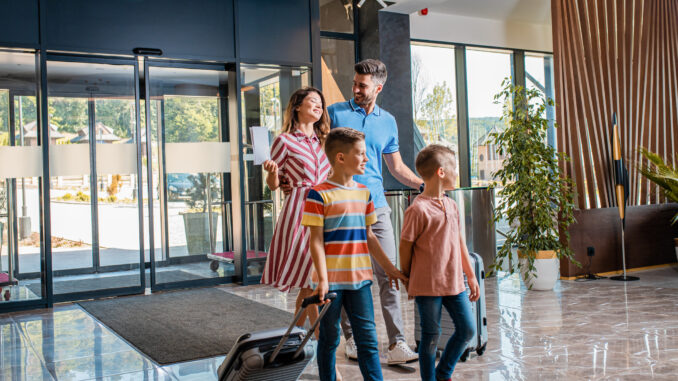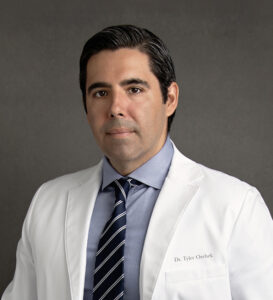
By Dr. Tyler Orehek, President of Airgle Corp, North America - 9.9.2022
It appears that it may not just be recent airline cancellations that have kept hotel bookings lower than previous years. Many remain concerned about the risk of Covid-19, and how indoor air quality (IAQ) at hotels can more generally impact their wellbeing. Recent findings suggest that to make hotels more safe, air purification systems were able to reduce the risks of Covid-19 by a factor of 10.
Indoor air pollution is considered to be on the top five environmental risks for public health. From increased risk of Covid-19 infection to short-term risks of compromised IAQ, resulting as headaches, nausea, dizziness, eye and throat irritation and fatigue, poor air quality can be debilitating, and have significant health ramifications.
For the hospitality industry, making sure that guests are comfortable and safe, should be of the utmost importance. As a world-class provider of air purification systems, we at Airgle understand the impact that IAQ can have on not only a traveler’s experience, but their overall health and wellbeing as well.
Firstly, it’s important to note that buildings’ ventilation systems were never designed nor intended to be discriminating enough to capture airborne, viral pathogens. Viruses are extremely small, on the order of 0.1 microns in diameter. And a building’s HVAC system can only do so much. By design, HVAC systems are intended to be porous enough for adequate air flow to either cool or heat a building. This is why medical-grade air purification systems, of the stand-alone variety, are far superior to HVAC filtration.
So, what can hotels do to take steps in improving IAQ? There are several ways that they can boost air quality for guests.
Medical-Grade Air Purification
One of the key components to improving IAQ is employing commercial, medical-grade and stand-alone air purification systems. The internal filters of such systems are significantly more efficient at filtering out viruses and airborne pollutants than HVAC systems. Additionally, medical-grade systems have the added benefit of providing continuous, purified air changes each hour. The higher the air changes per hour (ACH), the faster that air is drawn into the air purification system and purified of contaminants.
How effective air purification systems are, is directly linked to the quality and integrity of the type of filter used. This impacts how well a purifier captures airborne contaminants, from microbial contaminants like viral pathogens and mold, to volatile organic compounds (VOCs) and ultra-fine particulates.
Fresh Air & Increased Ventilation
While not as effective as a stand-alone air purifier, introducing fresh air to a space is another valuable way to remove and dilute contaminants in a concentrated space. A few simple techniques, such as opening windows when possible or placing fans near open windows, particularly in common spaces, are effective ways to improve IAQ.
Also, HVAC systems themselves can be utilized to ensure maximum ventilation. HVAC systems can be set to allow as much air flow as the system can safely process, which should be considered during the hotel’s busiest times, or between room changes. Setting HVAC systems to “on” instead of “auto” is another way to guarantee that fans are running continuously throughout the day. With a large number of people spending time in the same spaces, whether it be the gym, lobby, or even guest rooms, having robust air flow is critical.
Identify Sources of Contamination
One last factor that hotels should consider is Source Control. This means eliminating any single sources of compromised air quality. This is one of the most cost effective ways to improve IAQ; By tackling these sources, air quality will immediately improve.
For example, wet sheetrock in the pool area can breed mold, while asbestos is often found in older buildings. Removing these sources leads to a decrease in pollutants, and the negative impact they have on guests, almost instantly. And the less pollutants that need to be removed and purified, the easier it will be for an air purification system to do its job.
In a hotel, where a vast number of people travel in and out, and share the same space each day, it’s critical to use the most effective tools to combat poor IAQ. Not only is this a business imperative with more people rethinking their travel plans amid Covid-19 and other health concerns, but hotels must provide guests with the safest environment possible. With the risk of Covid-19 at large, and other health risks associated with poor IAQ, the time for hotels to take action is now.
 Dr. Tyler Orehek is the President of Airgle Corp, North America, a global leader in the air purification industry. Beginning his professional career in 2003, Dr. Orehek owned and operated a multidisciplinary practice in midtown Manhattan and served as the primary-care physician and portal-of-entry healthcare practitioner. Dr. Orehek has been an indoor air quality specialist since 2007. He is also a Council-Certified Indoor Environmental Consultant (CIEC), board-awarded by the American Council for Accredited Certification (ACAC).
Dr. Tyler Orehek is the President of Airgle Corp, North America, a global leader in the air purification industry. Beginning his professional career in 2003, Dr. Orehek owned and operated a multidisciplinary practice in midtown Manhattan and served as the primary-care physician and portal-of-entry healthcare practitioner. Dr. Orehek has been an indoor air quality specialist since 2007. He is also a Council-Certified Indoor Environmental Consultant (CIEC), board-awarded by the American Council for Accredited Certification (ACAC).
Are you an industry thought leader with a point of view on hotel technology that you would like to share with our readers? If so, we invite you to review our editorial guidelines and submit your article for publishing consideration.
